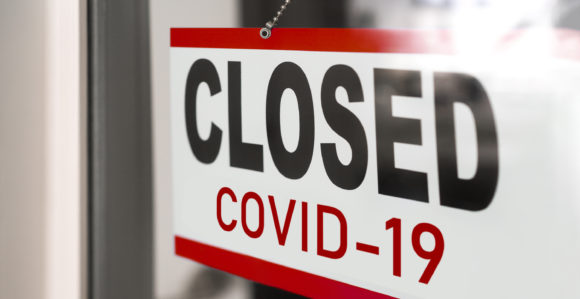An employer owed no duty of care to the wife of an employee who was hospitalized after contracting COVID-19 that was carried home from the workplace by her husband, the California Supreme Court ruled Thursday.
In a unanimous decision, the court held that such “take-home COVID” cases are not barred by workers’ compensation exclusive remedy. And in other circumstances, employers may be held responsible under California law for failing to mitigate against a foreseeable risk.
The high court, however, said the stakes are too high to impose liability on employers for failing to prevent the spread of COVID-19.
“Imposing on employers a tort duty to each employee’s household members to prevent the spread of this highly transmissible virus would throw open the courthouse doors to a deluge of lawsuits that would be both hard to prove and difficult to cull early in the proceedings,” the opinion said. “Although it is foreseeable that employees infected at work will carry the virus home and infect their loved ones, the dramatic expansion of liability plaintiffs’ suit envisions has the potential to destroy businesses and curtail, if not outright end, the provision of essential public services.”
The case decided the state Supreme Court was brought by the wife of a construction worker who was infected by COVID-19 and had to be hospitalized for several weeks, and part of that time was sustained by a respirator.
Corby Kuciemba alleges that her husband Robert brought the disease home to her after coming into close contact with infected co-workers at a construction site in San Francisco while working for Victory Woodkworks. Her lawsuit against Victory alleges that the company did not follow safety protocols when it transferred workers who may have been exposed to the virus to her husband’s jobsite.
Viewpoint: ‘Take-Home COVID’ Claims May Lead to Future Insurance Disputes
The Kuciembas sued Victory in San Francisco County Superior Court. The case was removed to the US District Court for Northern California in San Francisco. The District Court dismissed the lawsuit, ruling that the claim was barred by workers’ compensation exclusive remedy, the Kuciembas did not plead a plausible claim and that Victory’s duty to provide a safe workplace did not extend to nonemployees.
The Kuciembas appealed. The 9th District Court of Appeals accepted review and sent the California Supreme Court two certified questions. In short, those were:
1. Is the claim barred by exclusive remedy?
2. Does an employer owe a duty of care under California law to prevent the spread of COVID-19 to employees’ household members?
The Supreme Court said the answer to both questions is no. While exclusive remedy does not bar claims by household members against employers who are exposed to an illness, society cannot afford a finding that employers owe a duty of care to prevent the spread of a disease during a pandemic, the court said.
“We conclude that, although the transmission of COVID-19 to household members is a foreseeable consequence of an employer’s failure to take adequate precautions against the virus in the workplace, policy considerations ultimately require an exception to the general duty of care in this context,” the opinion says.

William A. Bogdan, an attorney who represented Victory Woodworks, said the Supreme Court agreed with two of his three main arguments. While the court rejected his reasoning that exclusive remedy bars Corby Kuciemba’s claim, it agreed that employers have no duty of care to protect household members from pandemics and that a decision for the plaintiff would be devastating for employers.
“California almost always sides with the injured party allegedly harmed by the business,” said Bogdan, a partner with Hinshaw & Culbertson in San Francisco. “Here, they recognized the potential to allow these suits would bring business to a crawl or a complete halt.”
The US Chamber of Commerce and other business groups made similar arguments in amicus briefs.
Alan Charles Dell’Ario, an attorney in Napa who wrote an amicus brief on behalf of the Consumer Attorneys of California, said the Supreme Court created an exception to the general duty that everyone else has to follow the law. He said Corby Kuciemba contracted COVID-19 because her husband’s employer violated a safety order.

“No evidence existed to support the court’s supposed flood of litigation or other negative consequences that it supposed would have ensued had it refused to excuse the employer’s safety violation here,” he said in an email.
Workers’ compensation defense attorneys John Kamin and Louis A. Larres, both with the Bradford and Barthel law firm in Southern California, posted an analysis of the decision hours after the Supreme Court posted it online. They said generally “public policy” arguments are a long shot, but in this case they worked. The opinion even cites an amicus brief filed by the Construction Employers’ Association.
“As amicus curiae CEA aptly put it, ‘If there was ever a ‘floodgates’ situation, this is it,’ the opinion says. “Courts would have to manage a very large number of suits, and variations in individual exposure history would make it difficult, if not impossible, for the cases to be grouped into collective or class actions.”
The California Supreme Court noted that three federal district courts, applying state laws in Wisconsin, Illinois and Maryland, have also “declined to recognize a duty for employers to prevent the spread of COVID19 outside the workplace.”
Was this article valuable?
Here are more articles you may enjoy.


 Stellantis Weighs Using China EV Tech for Affordable Cars
Stellantis Weighs Using China EV Tech for Affordable Cars  UK Floods Raise Specter of ‘Mortgage Prisoners’ Across Banks
UK Floods Raise Specter of ‘Mortgage Prisoners’ Across Banks  Walmart to Pay $100 Million to Settle FTC Case on Driver Wages
Walmart to Pay $100 Million to Settle FTC Case on Driver Wages  AI Got Beat by Traditional Models in Forecasting NYC’s Blizzard
AI Got Beat by Traditional Models in Forecasting NYC’s Blizzard 